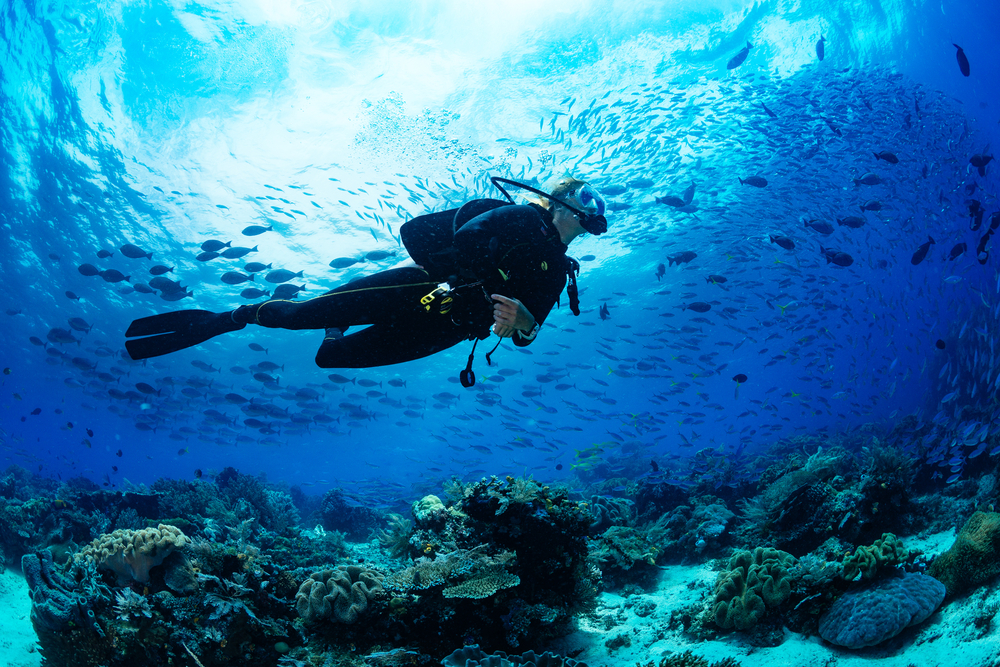Contents:
- Medical Video: Crazy DANGERS Of Deep Sea Diving
- What is nitrogen narcosis?
- What are the symptoms of nitrogen narcosis?
- What causes nitrogen narcosis?
- How do you know nitrogen narcosis when diving?
- How to overcome nitrogen narcosis?
Medical Video: Crazy DANGERS Of Deep Sea Diving
For lovers of the underwater world, scuba diving is the most popular sport. In addition to enjoying the beauty of nature and marine life, scuba diving also has health benefits. Scuba diving can train breathing, train all body muscles, burn more calories and relieve stress. However, behind all the benefits, scuba diving also has health risks, one of which is nitrogen narcosis.
What is nitrogen narcosis?
Nitrogen narcosis or a condition of loss of consciousness due to anesthetized narcotic effects of high-dose nitrogen which dissolves in the body after diving.This can occur during shallow dives, but is more likely and often occurs in divers who fall far below 20 meters. This condition can become severe at a depth of 40 meters. This is what makes the safe limit for scuba diving.
The deeper you dive, the greater your risk of experiencing narcosis. The reason is, the deeper you dive, the higher the pressure your body receives so that it will increase the nitrogen you absorb.
What are the symptoms of nitrogen narcosis?
Narcosis produces a condition similar to alcoholism. The symptoms of nitrogen narcosis include dizziness, euphoria (unhappy happiness), disorientation (confused / dazed), loss of balance, slow reaction response, and cognitive disorders such as slurred speech, difficulty remembering, poor concentration, difficulty in thinking clearly, difficulty processing information, and difficulty understanding what other people say.
The effect of anesthesia can then cause hallucinations, disorders of body balance and coordination, blindness, unconsciousness (partially or completely), and even death.
These symptoms can be exacerbated by cold temperatures, stress, and rapid changes in pressure.
What causes nitrogen narcosis?
The cause of nitrogen narcosis is the narcotic effect of high-dose nitrogen that dissolves in the body.
The effect of anesthesia from nitrogen can be achieved when your body is in a high pressure environment, such as in the deep sea. When affected by high pressure, nitrogen in the body dissolves to absorb into the nerve membrane and causes interference with the transmission of brain signals. This then causes various changes in your mental state and sensory perception.
Nitrogen in the body is also believedreact with fat tissue. Most of the brain consists of fat tissue.
How do you know nitrogen narcosis when diving?
The effect of a nitrogen anesthetic can cause you to fall asleep and get a hangover sensation, which makes you decide to continue diving deeper beyond the pressure of the reserve tank without worrying. The effect of this hangover makes you not aware of the real danger of nitrogen narcosis.
For a way to quickly detect narcosis while diving, pay attention to unusual emotional changes. Many divers report experiencing unusual thoughts during narcosis. For example, a diver has reported strange effects such as tasting sweet water or seeing different colors on their pressure gauge.
Go up (slowly) or let your instructor and dive buddy know when you are having trouble understanding information, such as reading a pressure gauge or diving screen.
How to overcome nitrogen narcosis?
Once you begin to realize the symptoms, slowly rise up. The effect of narcosis will decrease when you reach more shallow waters. After that, the symptoms will subside and disappear completely, without remaining.
We recommend that you do not immediately continue diving afterwards. Give your body time to adjust first for some time. If symptoms continue, immediately stop your diving session after reaching the surface of the water.
Never dive alone. Help diving friends is important when you start feeling the symptoms of nitrogen narcosis in the sea.












